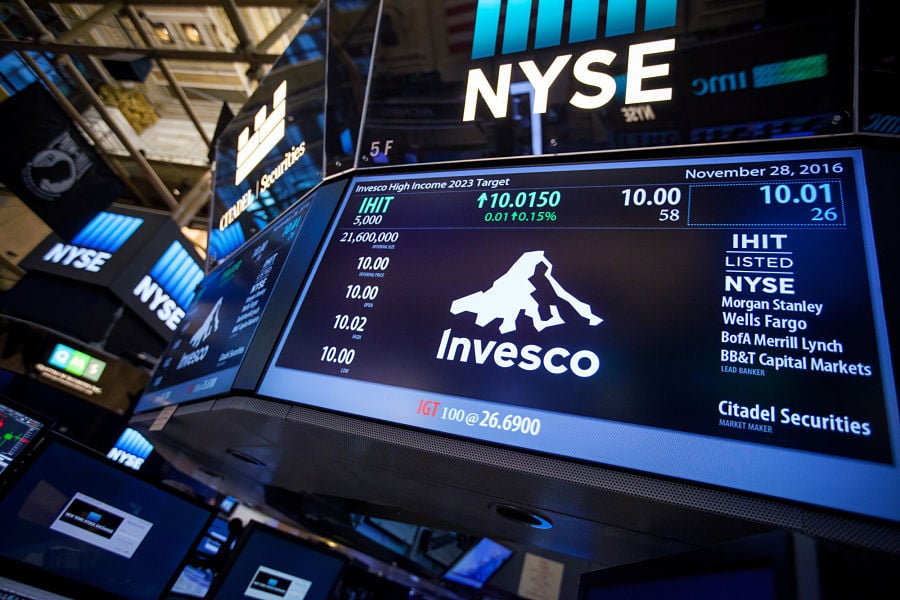

Invesco, the fourth-largest ETF provider, is aiming to take a bite out of ETF industry leader BlackRock’s market share by launching two funds that track indexes that BlackRock’s iShares brand is abandoning.
Depending on how things play out, the strategy could see billions of investor dollars migrate from iShares to Invesco.
In an effort that went beyond your garden variety ETF launch, Invesco scrambled to get regulatory approval in just 40 days for two thematic technology funds tracking Nasdaq indexes that are currently tracked by two iShares funds.
The new funds – Invesco Nasdaq Biotechnology (IBBQ) and Invesco PHLX Semiconductor (SOXQ) – began trading Friday, 10 days before iShares Nasdaq Biotechnology (IBB) and iShares PHLX Semiconductor (SOXX) switch to tracking the ICE Biotechnology Index and ICE Semiconductor index, respectively.
“It is extremely unusual to see Invesco launching funds that copy funds that already exist, but in certain circumstances some indexes become available and if we think there’s value in a particular strategy, we become interested,” said Anna Paglia, Invesco’s global head of ETFs and indexed strategies.
Citing Invesco's “very long-standing relationship with Nasdaq,” Paglia said, “we started having conversations with Nasdaq [about licensing the two indexes] a few days after the iShares announcement” that BlackRock was switching out of the Nasdaq indexes.
“Our desire was to launch these funds before iShares discontinued their funds,” Paglia said.
The combined assets in the two iShares funds total almost $18 billion, and Invesco is hoping to entice current investors to stick with the Nasdaq indexes by offering a fee waiver through Dec. 17.
After that, the ETFs will charge 19 basis points, which compares to 46 basis points for the two iShares funds.
Once the fee waiver expires, the Invesco funds will be the “least expensive, by far” tracking these sub-sectors, said Todd Rosenbluth, director of mutual fund and ETF research at CFRA.
After the Invesco funds, the next cheapest ETFs tracking biotech and semiconductor indexes are SPDR S&P Biotech (XBI) and VanEck Vectors Semiconductor (SMH), both of which charge 35 basis points.
Rosenbluth gave Invesco credit for its smooth move into BlackRock’s space with funds that will operate alongside the iShares ETFs until June 21, use fee waivers as bait, and even come with ticker symbols that are almost identical to the iShares funds.
“There was room for a firm to come in at a competitive price and potentially take market share,” he said.
This is not the first time Invesco has jumped on the opening created when an index licensing agreement was vacated by another fund provider.
In 2011, it launched the Invesco KBW Bank ETF (KBWB) and even included a temporary fee waiver. That fund has grown to $2.6 billion.
BlackRock did not respond to a request for comment for this story beyond providing a copy of the April 22 announcement about the two iShares ETFs switching indexes.

Relationships are key to our business but advisors are often slow to engage in specific activities designed to foster them.

Whichever path you go down, act now while you're still in control.

Pro-bitcoin professionals, however, say the cryptocurrency has ushered in change.

“LPL has evolved significantly over the last decade and still wants to scale up,” says one industry executive.

Survey findings from the Nationwide Retirement Institute offers pearls of planning wisdom from 60- to 65-year-olds, as well as insights into concerns.
Streamline your outreach with Aidentified's AI-driven solutions
This season’s market volatility: Positioning for rate relief, income growth and the AI rebound
